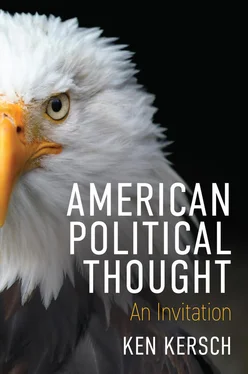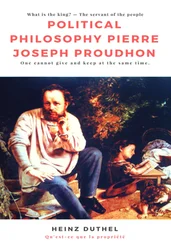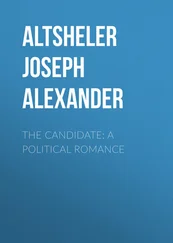These affinities, antagonisms, arguments, and dissonances lent the American founding a multivalent – and sometimes contrapuntal – character that left Americans with a powerful but complicated ideational and institutional legacy.
1 Were the Puritans a force for progress or reaction? Was Puritan thought “liberal” or “illiberal”?
2 Is the American Revolution best understood as conservative or radical? Was it really revolutionary at all? In what sense?
3 How much of a distinction is there, ultimately, between the categories of “constitutional design” and “constitutional interpretation”?
4 How do the oppositions between Federalists and Antifederalists, and Hamiltonians and Jeffersonians, map onto the politics of subsequent American history, including the present day?
5 Does it make sense to speak of the American founding as instituting a “democracy”?
6 Does it make sense to speak of any coherent group under the label of “the founders”?
7 Does the existence and acceptance of chattel slavery by the new nation vitiate any moral or political value that the American founding might otherwise have?
1 1. Early in the nation’s history, a number of states in the federal system did, increasingly controversially, require religious tests for public office. These were gradually eliminated in the first half of the nineteenth century.
2 2. Thomas Jefferson’s University of Virginia (1819) was a deliberate exception. In designing UVA, Jefferson omitted the usual campus chapel, and replaced it with the Rotunda, a classical structure modeled on the Roman Parthenon, which served as the library, and was meant to reflect the “authority of nature and power of reason.”
3 3. See, e.g., Somerset v. Stewart (1772), a decision by Great Britain’s Kings Bench, written by Lord Mansfield, which declared chattel slavery a practice contrary to common law and right, “so odious, that nothing can be suffered to support it, but positive law.”
4 4. Jon Elster, Ulysses Unbound: Studies in Rationality, Precommitments, and Constraints (2000); Federalist #1 (Hamilton).
5 5. McCulloch v. Maryland, 17 US 316 (1819).
6 6. Federalist #78. This was another Hamilton argument reprised by John Marshall, in this case in Marbury v. Madison (1803).
7 7. See Hanna Pitkin, The Concept of Representation (1967).
8 8. See Herbert Storing, What the Antifederalists Were For (1981); Saul Cornell, The Other Founders: Anti-Federalists and the Dissenting Tradition in America, 1788–1828 (2012).
9 9. David Siemers, Ratifying the Republic: Antifederalists and Federalists in Constitutional Time (2002); Jeffrey Tulis and Nicole Mellow, Legacies of Losing in American Politics (2018).
Конец ознакомительного фрагмента.
Текст предоставлен ООО «ЛитРес».
Прочитайте эту книгу целиком, купив полную легальную версию на ЛитРес.
Безопасно оплатить книгу можно банковской картой Visa, MasterCard, Maestro, со счета мобильного телефона, с платежного терминала, в салоне МТС или Связной, через PayPal, WebMoney, Яндекс.Деньги, QIWI Кошелек, бонусными картами или другим удобным Вам способом.












